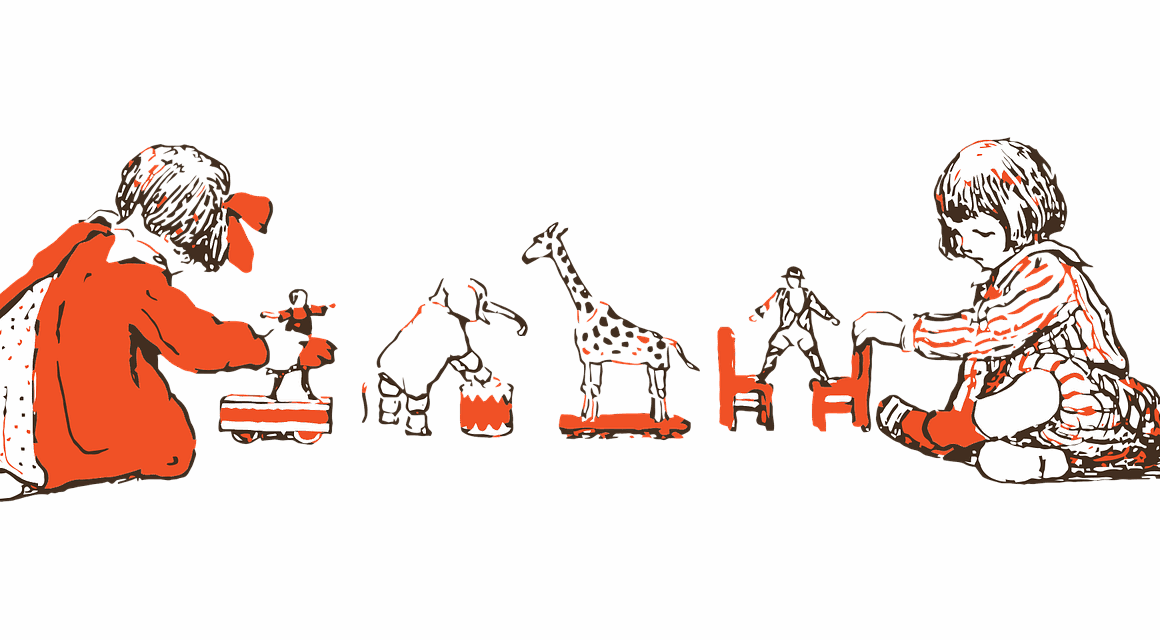Using Parental Involvement to Boost Toddler Physical Activity Levels
Parents play a critical role in promoting physical activity for toddlers, significantly influencing their engagement and enthusiasm. By integrating fun physical activities into daily routines, parents can effectively raise their children’s activity levels. Simple games like tag or dancing promote movement and enjoyment while allowing parents to teach their children about the importance of physical health. Additionally, outdoor activities like playing in parks encourage exploration and active play. Establishing a designated time for physical activity reinforces its importance in a toddler’s routine. Family walks or bike rides not only promote fitness but also strengthen family bonds, creating a sense of togetherness. Parents can also encourage participation in structured activities such as toddler yoga or swimming classes, which introduce children to new forms of movement while fostering social skills. These classes help develop motor skills and coordination. Furthermore, setting a positive example is crucial; when parents are active, their children are more likely to mirror these behaviors. Engaging in regular physical activities together creates joyful memories, propelling toddlers towards a healthier lifestyle. Following these simple methods can inspire lifelong fitness habits amidst your children.
The Power of Play for Physical Activity
Establishing an environment that encourages play is vital for toddlers, significantly promoting their physical development. Parents can provide various materials such as balls, jump ropes, or climbing frames, which inspire movement and exploration. Allowing toddlers to interact with these items enhances their motor skills while making exercise enjoyable. Playtime with peers or siblings ignites competitive spirit and teamwork. Family-friendly games such as scavenger hunts or obstacle courses create opportunities for active play, enhancing toddlers’ skills. Parents should structure play to be active but also spontaneous and unstructured, as this encourages creativity. Using engaging music can make ordinary playtime into a dance party, making it even more fun! Outdoor settings are particularly beneficial, as nature contributes to overall mood and stimulates physical activity. Involve toddlers in active adventures like hiking, which can spark enthusiasm and foster a love for outdoor exploration, connecting them with their environment. Lastly, focusing on exercise during everyday tasks, like walking instead of driving for short trips, subtly incorporates physical activity into routines. This holistic approach ensures toddlers develop positive attitudes towards fitness while maximizing their chances of staying active.
Involvement in sports teams or community activities can help toddlers develop social skills while learning about being active. Parents should introduce their children to various sports early, but without pressure, allowing them to explore interests freely. Such exploration can instill confidence and teamwork values. Parents must remain supportive and encouraging, fostering a positive experience that will enhance physical activity engagement. Celebrating every achievement, no matter how small, empowers toddlers to take pride in their efforts. Providing encouragement during practice sessions or games builds a supportive atmosphere that makes kids feel valued and excited. This participation can create lasting memories associated with movement, solidifying a connection between fun and fitness. Communication is also vital, as talking to toddlers about how exercise benefits them helps instill understanding and encourages informed decisions regarding activity levels. Parents can share fun facts about physical exercise, such as how it boosts mood or provides energy. Engaging with their children in relatable discussions creates an open notion of healthy lifestyle choices. Lastly, combining physical activities with regular family events can routinely place importance on having fun while remaining active, ensuring that toddlers develop positive associations with fitness.
Healthy Routines for Active Toddlers
Creating a healthy routine is essential for incorporating physical activities into a toddler’s daily life. Parents should aim to establish a variety of activities throughout the week, ensuring a balance of physically engaging and relaxing times. Setting specific days for outdoor play or creative movement sessions can help keep toddlers excited about fitness and maintain consistency. Engaging toddlers in planning fun activities can also enhance their enthusiasm. Letting children choose activities allows them to feel some control, fueling joy towards the experience. Parents should embody positive health practices, such as involving children in meal preparation, discussing the benefits of healthy nutrition alongside physical fitness. Completing a family fitness challenge, such as a step contest or exercise bingo, can serve as motivation for everyone involved. A healthy family dynamic emphasizes the importance of movement and nutrition, encouraging children to model these behaviors consistently. Allocating screen-free times ensures that distractions do not hinder an active lifestyle, allowing toddlers to engage in play and movement without interruption. Finally, continuous evaluation of routines helps identify activities that resonate with toddlers, ensuring they remain exciting and enjoyable while contributing positively to their health.
Parents must acknowledge the importance of peer relationships, as they significantly influence toddlers’ activity levels. Encouraging playdates or group activities helps toddlers develop social skills and keeps them active. Playdates should involve movement-oriented activities, such as visiting a playground or having supervised backyard games, enhancing fitness in a fun way. Parents can take turns organizing gatherings that inspire toddlers to be active together, fostering a friendly environment for cooperation and teamwork. Facilitating organized sports or dance classes with peers nurtures camaraderie and excitement while developing essential coordination and motor skills. Social connections can motivate toddlers to maintain an active lifestyle while providing them with friends who share similar interests. Parents should also maintain open lines of communication regarding how friendships potentially affect activity levels, especially as children grow. Discussing peer encouragement can provide insights into toddler motivations and hurdles. As kids witness their friends playing outside or joining groups, they themselves may desire to participate in order to stay connected. Fostering these relationships ensures that active play becomes a natural part of the toddler’s life, reinforcing the long-term benefits of collaboration and friendship through fitness.
The Role of Nutrition in Activity Levels
Nutrition plays a vital role in supporting toddlers’ physical activity, enhancing their energy, focus, and overall development. Parents should provide mouth-watering healthy meals to encourage active lifestyles for their children. Incorporating whole foods, fruits, whole grains, and lean proteins ensures toddlers receive the essential nutrients needed for growth. Establishing proper eating habits early teaches children to make healthier choices throughout their lives. Offering nutritious snacks before and after physical activities significantly boosts energy levels and keeps toddlers engaged during play. These snacks may include fruit slices, yogurt, or nut butter on whole-grain crackers. It’s important for parents to remember that hydration is also essential for children, especially during play or exercise. Encouraging toddlers to drink water before, during, and after active play prepares them for participation and promotes overall well-being. Parents should lead by example, promoting healthy food choices and a balanced diet while expressing the benefits of good nutrition in daily conversations. By creating an engaging environment that focuses on nutrition and fun, families can help toddlers forge an affiliation with health that lasts a lifetime.
Ultimately, teamwork between parents and caregivers is crucial for fostering an environment conducive to active lifestyles, especially for toddlers. Open communication among family members about fitness ideas or concerns ensures that all parties work harmoniously towards positive outcomes. Encouraging siblings to be role models involves engaging toddlers in play and keeping spirits high during activity sessions. Parents can share fitness responsibilities with grandparents or relatives, extending the support system essential for toddler engagement in physical activities. Rallying friends and neighbors to organize community events that include toddlers promotes unity and collaboration, ultimately emphasizing the joys of being active together. Including parents in school activities or sports meetings can strengthen relationships and offer valuable networking opportunities. Additionally, developing community-based programs that focus on toddler fitness provides families with multiple resources available to promote active lifestyles. Continuous support from surrounding adults can profoundly impact a toddler’s perception of fitness, reinforcing its significance in their lives. By building a solid support network, parents can ensure their toddlers engage actively in physical activities, setting them up for a successful, healthy future.


